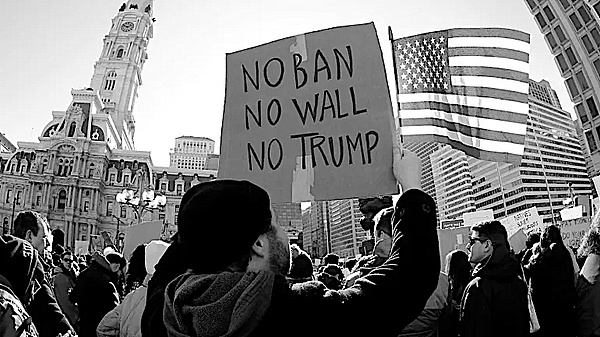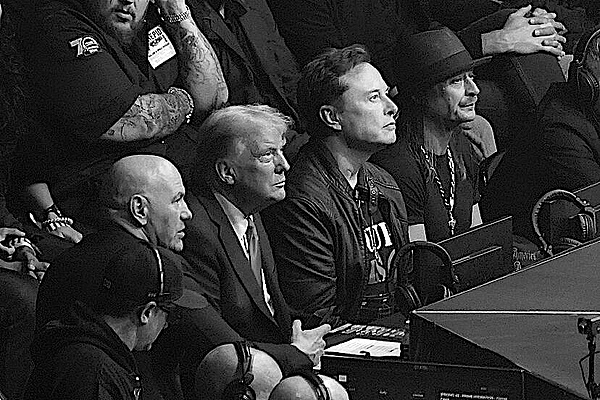Source: Zhou Ziheng
Almost all eyes are on Donald Trump's latest term in office, as his economic policies appear set to bring fundamental changes to the global economy.
A report published by The Economist says Trump's approach combines financial liberalization with strict restrictions on trade and immigration, which could have complex effects on U.S. and global markets.
Controversial Radical Reforms
The Economist noted in this report that Trump made headlines in global media at the beginning of his term, including the establishment of a "Ministry of Government Efficiency" led by Elon Musk and Vivek Ramaswamy - with the goal of reducing government spending by $2 trillion a year.
Trump's new administration also seeks to liberalize the use of artificial intelligence and promote legislation related to its infrastructure, which could boost productivity and economic growth.
But other policies, such as deporting millions of immigrants and imposing tariffs of up to 60 percent on China and 10 to 20 percent on other countries, have raised concerns about their negative impacts, the newspaper reported.
It is estimated that the cost of deporting immigrants could reach hundreds of billions of dollars and would lead to labor shortages and higher prices, especially in the agricultural sector, which relies on immigrant labor.

Trump's policies on deportation and tariffs have raised concerns about their negative impact (Reuters)
Obstacles to implementing Trump's plans
Despite the apparent enthusiasm for implementing these policies, the US government faces major challenges, as the imposition of general tariffs would require congressional approval, and Republicans who support free trade are likely to oppose them, The Economist reported.
Similarly, the implementation of large-scale deportation policies would require the cooperation of local authorities, who may refuse to participate, further complicating matters.
Currently, the market is optimistic about tax cuts and the repeal of strict legislation, as investors believe that these measures will boost corporate profits in the short term.
But the Economist report warned that in the long run, inflation will have an impact and disrupt global trade.
The appreciation of the US dollar may lead to higher interest rates, which will in turn impose additional burdens on developing economies that rely on US dollar debt.

Dana White, President-elect Donald Trump, Elon Musk and Kid Rock attend UFC 309LAPRESSE
Elon Musk puts the pressure on Donald Trump via X
https://www.marca.com/en/lifestyle/us-news/presidential-election/2024/11/17/673a292ce2704ea0138b4573.html
Mexico, China and Europe in Trump's Target
Analysis suggests that Trump's policies in a second presidential term could have broad impacts on the global economy, with Mexico, China and Europe set to be the hardest hit regions.
This is due to the ties these countries have to U.S. trade, immigration and defense policies, which are expected to change radically during this period.
Mexico: The country is considered the most vulnerable to Trump's policies due to its economic reliance on exports to the United States. Mexico is expected to face additional pressure due to the tightening of US immigration and trade policies.
China: With figures such as Marco Rubio and Mike Waltz being appointed to influential positions, trade tensions between the US and China are likely to escalate further and prompt some companies to shift their supply chains away from China.
EU: Due to the large trade deficit between the EU and the US and Trump's continued criticism of NATO, it is assessed that European leaders will face pressure to reassess their defense and economic policies.
A world between isolation and competition
As Trump's policies take hold, developing economies may face additional burdens from rising costs of dollar debt, according to The Economist.
On the other hand, there are calls to avoid retaliation on tariff policies and instead focus on improving competitiveness through economic reforms.
The newspaper said that China seemed to be better able to cope with these changes due to its focus on domestic demand, while the European Union was affected by delayed action in developing its internal market and adopting artificial intelligence technology.
In its report, The Economist pointed out that countries need to adapt quickly to these changes and focus on domestic reforms rather than trade escalation.
If the world wants to remain competitive in the face of "Trumpnomics" (Trump's economic approach), then improving economic efficiency will be the best way to meet future challenges.
 Weatherly
Weatherly






